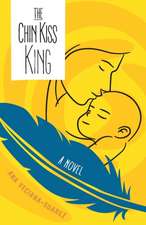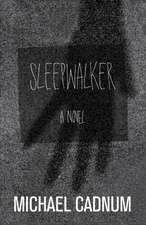The Grand Design
Autor John Dos Passosen Limba Engleză Paperback
Preț: 102.54 lei
Nou
Puncte Express: 154
Preț estimativ în valută:
19.62€ • 20.54$ • 16.24£
19.62€ • 20.54$ • 16.24£
Carte disponibilă
Livrare economică 17-31 martie
Preluare comenzi: 021 569.72.76
Specificații
ISBN-13: 9781504015486
ISBN-10: 1504015487
Pagini: 376
Dimensiuni: 140 x 216 x 21 mm
Greutate: 0.48 kg
Editura: Open Road Distribution
ISBN-10: 1504015487
Pagini: 376
Dimensiuni: 140 x 216 x 21 mm
Greutate: 0.48 kg
Editura: Open Road Distribution
Notă biografică
John Roderigo Dos Passos (1896–1970) was a writer, painter, and political activist. He wrote over forty books, including plays, poetry, novels, biographies, histories, and memoirs. He crafted over four hundred drawings, watercolors, and other artworks.
Dos Passos considered himself foremost a writer of contemporary chronicles. He preferred the moniker of “chronicler” because he was happiest working at the edge of fiction and nonfiction.
Both genres benefited from his mastery of observation—his “camera eye”—and his sense of historical context. Dos Passos sought to ground fiction in historic detail and working-class, realistic dialogue. He invented a multimedia format of songs, newsreels, biographies, third-person fictional narrative, and first-person semi-autobiographical narrative snapshots to convey the frenzy of America’s industrialism and urbanism in the twentieth century. His most memorable fiction—Three Soldiers (1921), Manhattan Transfer (1925), and the U.S.A. trilogy (1938)—possesses the authority of history and the allure of myth. Likewise, he sought to vitalize nonfiction history and reportage with the colors, sounds, and smells documented on his journeys across the globe.
Dos Passos considered himself foremost a writer of contemporary chronicles. He preferred the moniker of “chronicler” because he was happiest working at the edge of fiction and nonfiction.
Both genres benefited from his mastery of observation—his “camera eye”—and his sense of historical context. Dos Passos sought to ground fiction in historic detail and working-class, realistic dialogue. He invented a multimedia format of songs, newsreels, biographies, third-person fictional narrative, and first-person semi-autobiographical narrative snapshots to convey the frenzy of America’s industrialism and urbanism in the twentieth century. His most memorable fiction—Three Soldiers (1921), Manhattan Transfer (1925), and the U.S.A. trilogy (1938)—possesses the authority of history and the allure of myth. Likewise, he sought to vitalize nonfiction history and reportage with the colors, sounds, and smells documented on his journeys across the globe.














